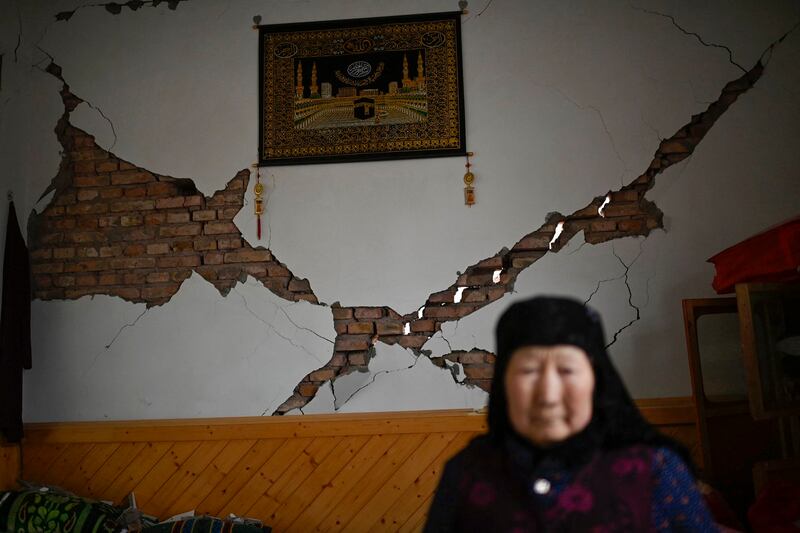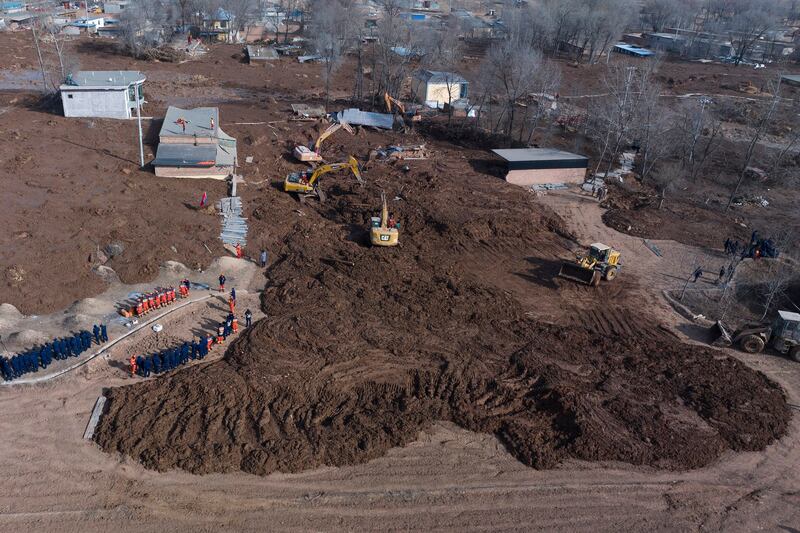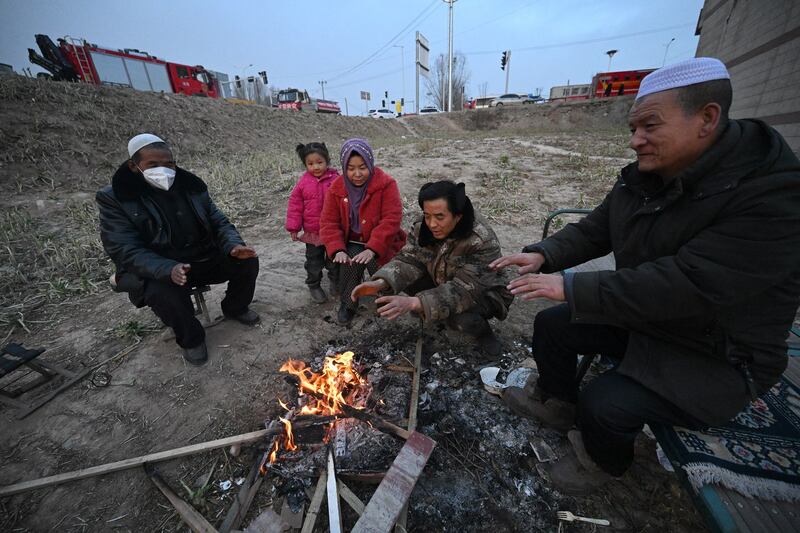Rescuers on Tuesday scrambled to find people trapped under collapsed buildings following a magnitude 6.2 earthquake in western China that left more than 100 dead and hundreds injured, a toll that is likely to rise.
The shallow quake rocked Gansu and Qinghai provinces late on Monday, bringing down buildings across Jishishan county and Linxia Hui Autonomous Prefecture, as well as parts of neighboring Qinghai, state media reported.
A Gansu resident who gave only the surname Li said the quake hit just as he had gotten into bed.
"Everyone was woken up by the quake," Li said. "I looked at my watch at about midnight -- some people ran out into the street."
He said the feeling was similar to the May 12, 2008, quake that hit the southwestern province of Sichuan, leaving more than 80,000 people dead, which happened when he was in the provincial capital Chengdu.
"The building shook violently, and it lasted for two or three minutes, making it unsteady to walk around," Li said.
Shaken out of bed
Mobile phone footage from the quake-hit region showed people shaken out of bed, while late-night diners in a restaurant filmed their drinks being shaken onto the ground.
"I hadn't gone to sleep yet, so I ran outside and escaped," one phone user said in social media footage. "It's pretty bad here, and a lot of buildings have collapsed."

In one clip, a man is shouting for rescuers to help someone trapped in rubble.
"Hurry, hurry, it's pressing down on them," the man yells.
Official media said 100 people had died so far in Gansu and 11 in Qinghai.
"President Xi Jinping has urged all-out search and rescue efforts and proper arrangements for affected people to ensure the safety of people's lives and property," state news agency Xinhua reported.

"So far, the earthquake has caused 100 deaths in Gansu Province and 11 deaths in Qinghai Province, and damaged some infrastructure such as water, electricity, transportation and communications," it said.
Xi also called for 200 million yuan in disaster relief supplies to be sent to the worst-hit areas, and for repair of damaged power and telephone lines, roads and heating systems to be prioritized, as people left their homes in winter temperatures of -12 C.
Older buildings crumble
A Jishishan resident who gave only the surname Qin said he and his family had run down from the 16th floor of their apartment block, and drove to an open place.
A former resident of Linxia surnamed Li said some of the older buildings in the prefecture town had succumbed to the quake, while the newer buildings were in better shape.
"The houses are mostly brick with concrete beams, but there are also some adobe houses," he said. "The buildings that collapsed last night were mostly two and three-storeys high."
"More than 100 people died in such a short space of time, and that number is expected to increase," he said.

The Gansu Provincial Grain and Material Reserves Bureau said the first batch of cotton tents, quilts, folding beds, cotton shoes and stoves totaling 46,100 items had been loaded overnight and sent to the worst-hit areas.
While videos from people on the ground were still visible on social media platforms like Douyin, Weibo and WeChat, official news about the quake focused on the relief efforts, rather than the situation among quake victims.
Official media are typically ordered only to run with central-government approved news copy during natural disasters, while local people who speak out have had their posts deleted or been targeted by local authorities for detention and other forms of harassment.
Translated by Luisetta Mudie. Edited by Malcolm Foster.
